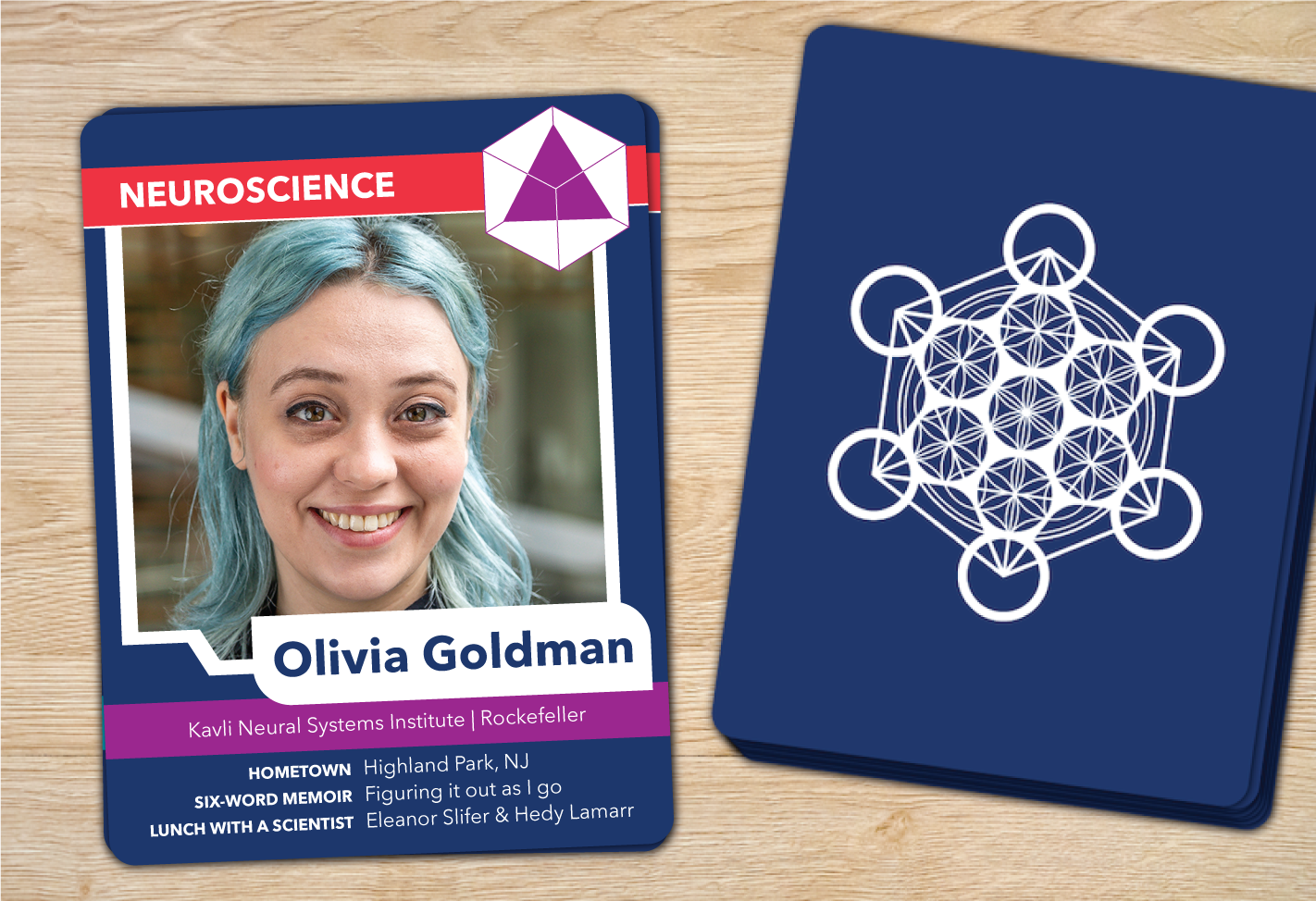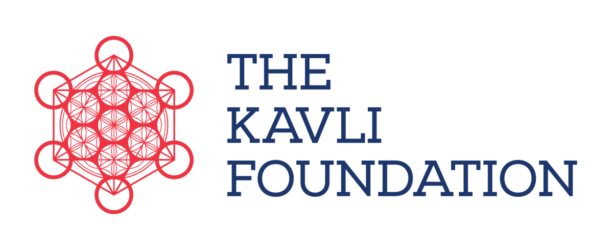
Olivia Goldman
Kavli Graduate Fellow, Laboratory of Neurogenetics and Behavior
KAVLI NEURAL SYSTEMS INSTITUTE | ROCKEFELLER UNIVERSITY
Hometown:
Highland Park, NJ
Favorite Scientific Discovery:
From the five “canonical taste qualities” (sweet, savory, salty, bitty, salty), cats and many other carnivores can’t taste sweet things. Dolphins can only taste salt.
Favorite Book or Movie:
Life is Beautiful / La vita è bella
Most Unusual Job:
In the 2000s, before internet was on phones, I was a
live “expert” for the answer-any-question-by-text service, ChaCha.
Six-Word Memoir:
Figuring It Out As I Go
Hobbies:
Biking, Music, Crafting, Pickling
How did you first become interested in science?
I first became interested in science through music. I was (and am) intrigued by how similar combinations of musical notes (similar auditory stimuli) can elicit vastly different emotional responses. A happy (major) chord and a sad (minor) chord have almost all the same notes—and exactly the same spatial relationship between the notes, just flipped upside down!
What is the question that most drives your work right now?
Insects can detect insect repellents with their legs! I study the organizational principles around chemical sensing in mosquito legs and how this impacts the mosquito’s perceptual space and behavior.
How would you explain your research to a kindergartener?
When you put on bug spray, insects are no longer interested in biting you. I research what it is like for a mosquito to taste you and your bug spray!
What are you most excited about or inspired by in science right now?
The potential for studying new animal models in basic research to revolutionize foundational principles in neuroscience.
Which scientist, dead or alive, would you most like to have lunch with and why?
My first is Eleanor H. Slifer, PhD. In 1954, she discovered that the tips of the hairs on grasshopper antennae would stain with a dye, discovering what we now understand to be “nanopores” — the reason insects can smell and taste through their impermeable exoskeleton. When she developed a severe allergy to grasshoppers, she went on to use electron microscopy to study the sensory structures in species in all 30 insect orders, finding these pores in all of them. The pictures from her work are remarkable! My second is Hedy Lamarr, mid-1900s pioneering film actress and co-inventor of the foundational technology for Bluetooth and Wi-Fi.
What is a common misconception about your research or your field?
Many people hesitate to use “chemical” insect repellents. People often confuse DEET, one of the most common and effective insect repellents, with DDT, an insecticide that was popular in the mid-1900s and is very harmful for wildlife. Regarding environmental and health concerns, DEET is a million miles away from DDT. You should definitely use DEET over “natural” repellents if you are in an area that puts you at risk for insect-borne disease.
You are very active in scientific outreach and have even started an organization to help minority students succeed in STEM. Can you tell us a little about Científico Latino?
It is almost impossible to succeed in the sciences unless you have a mentor who invests in you, and unfortunately access to quality mentorship can be limited, particularly for marginalized students. Científico Latino is a platform that creates open-access resources and opportunities for mentorship so that anyone—regardless of ethnicity, gender, sexual orientation, disability, or immigration status—has equal access to fellowship and scholarship opportunities, and the chance to learn from their peers to become successful STEM professionals.
You are working on your PhD right now. Can you tell us something that has been unique about your experience compared to other graduate students you have known or the average graduate student?
I have learned that every graduate student truly has a unique experience. Co-founding Científico Latino and a virtual reality company is probably one of the more unique elements of my experience. I do these projects in my free time because I really like to work with other people to build upon long-term projects and continuous and challenging search for new paths of growth. Lately though, I am trying to be more mindful to investing my free time into people and communities around me.
You also co-founded a company and worked as a science journalist. How have those experiences helped shape your career plans?
I aspire to be a principal investigator. My experiences helped me discover and grow skills that are crucial for being the head of a lab and managing a team. I may not have developed these abilities if I hadn’t pursued opportunities outside of academia.
As a professional field, academia is very competitive. It is unfortunately par-for-the-course, particularly for graduate and postdoctoral scientists, to be undervalued, under-compensated and experience anxiety and job insecurity over their future careers. My experiences outside of academia have helped me to become confident in the inherent value of my work and to understand that persistence can be in equal measure a key to success or a vice that will come back to bite you in the long run.
